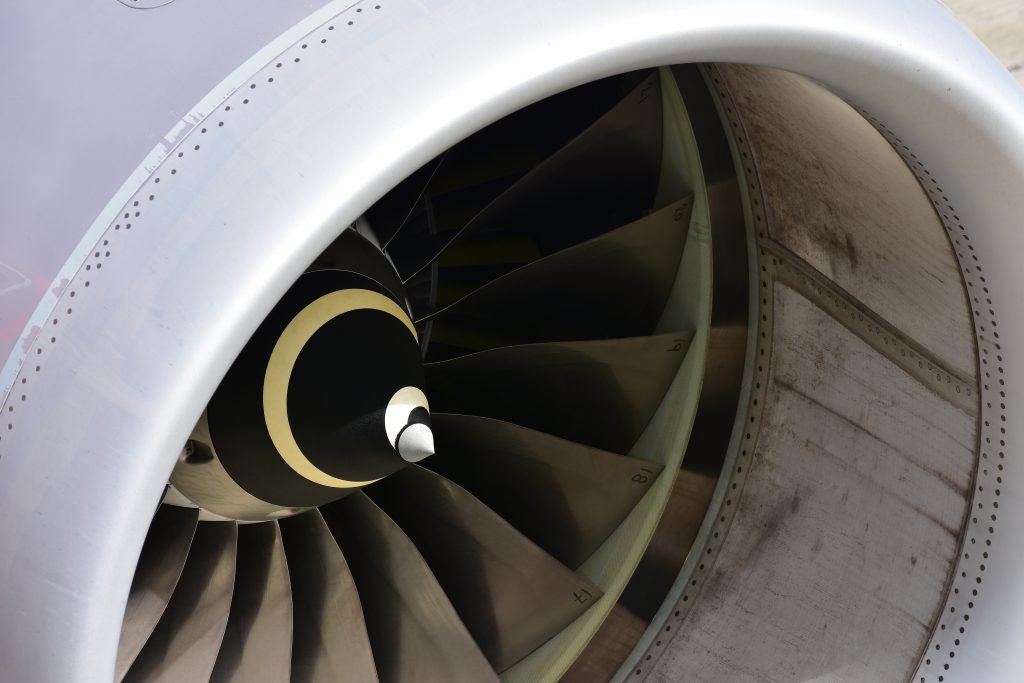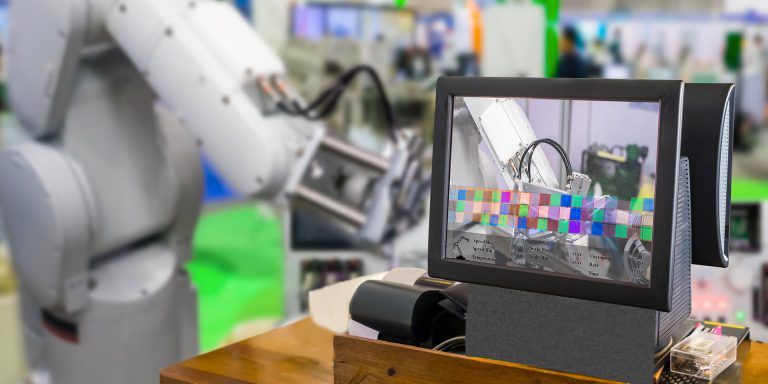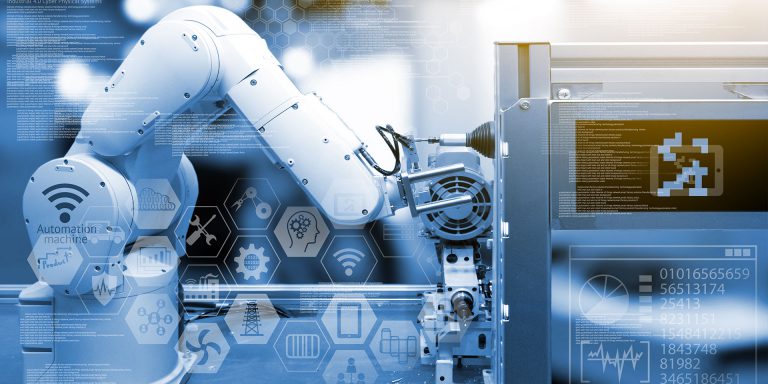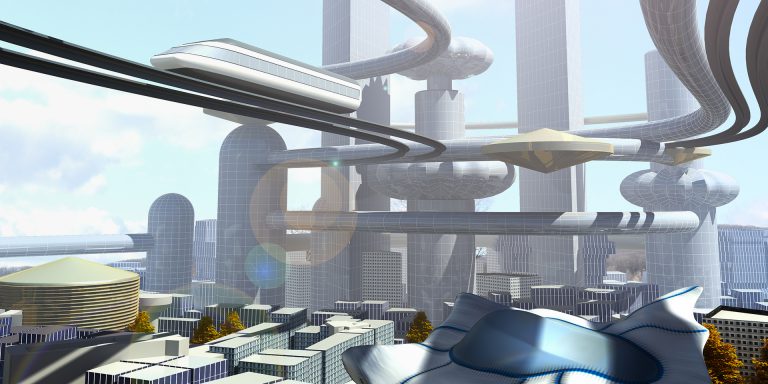The four impacts of Industry 4.0 on aeronautics
The pressure on aircraft production continues to build, fuelled by an increasingly significant surge in travellers. Today, the transition to Industry 4.0 appears to be the most effective solution to boost factory productivity.
In order to rise to the productivity challenge it is facing, aeronautics has a duty to get up to date with Industry 4.0. In the years to come, it will gradually integrate all the new digital technologies, software, and materials that will allow it to establish a new mode of organization and new means of production.
Pascal Brier, Executive Vice President, Strategy & Innovation of the Altran Group sheds light on the four major changes led by Industry 4.0 in aircraft production.
1. A unique data system (from the silo to cooperation)
Today, data managing aircraft production is often disseminated on different systems which are independent of each other and only slightly connected. This creates information islands around Enterprise Resource Planning (ERP), namely, administrative management, the MES (Manufacturing Executing System), the production scheduling system, or the group of factory floor systems, otherwise known as the heart of factories, the one in which parts are manufactured. Therefore, when a problem occurs, the relevant part of the factory is put into quarantine while the information goes up into the silos, and a decision is taken, thereby slowing down production sequencing.
The first impact of Industry 4.0 will be to reconnect all these silos in order to create vertical integration, a continuous chain of these data. Tangibly, sensors will be installed throughout the chain and will constantly send data on production status, stock management, possible problems, etc.
“Thanks to the data transmitted by the sensors, Industry 4.0 offers a real time analysis capacity of what is happening in the factory and thereby allows for direct reactions to possible problems”
Pascal Brier, Executive Vice President, Strategy & Innovation of the Altran Group
This vertical integration will also facilitate something essential: it will provide the capacity to make decisions at the heart of the factory floor. “Thanks to the data transmitted by the sensors, Industry 4.0 offers a real time analysis capacity of what is happening in the factory and thereby allows for direct reactions to possible problems,” says Pascal Brier. Which helps avoid quarantine systems that really compromise productivity.
2. New digital production technologies
Industry 4.0 also means the arrival of new digital technologies.
First, the factory will integrate new means of production, like 3D modelling and additive manufacturing. These technologies will allow parts to be designed with less material: lighter, smaller, and therefore less expensive to produce.
Consequently, production lines will be transformed. They will be comprised of smaller and more flexible equipment for production start-up. “Today, the done thing is to equip yourself with some massive machines that use several workers/companions at the station full-time to ensure that everything works properly and who blocks production if there is the slightest problem.
“In future, the entire line will be disrupted. It will be comprised of several small digital machines, equipped with sensors that are connected to a control room in real time, and can, therefore, be controlled remotely and are more flexible. This will change the way companies invest,” explains Pascal Brier.
Finally, all of these new machines being digital allows them to analyse their mechanisms thanks to artificial intelligence that will reduce error rates and down time. A McKinsey study, therefore, shows that these new machines can reduce quality cost by 10 to 20%, storage cost by 20 to 50%, and maintenance cost by 10 to 40%.
3. A centralized control room
If production line machines are all smart and connected, they will then generate an enormous data stream that the company will need to collect and analyse in order to better react.
This involves the creation of control rooms which will gather data from several machines, even from several production sites. These centres will monitor the activity of the entire production chain in real time and will use data to assist operators with their tasks.
The data can be sent on a mobile mechanism that will allow decision-makers to monitor their set of machines from anywhere at any time. “It is almost a factory in your pocket! Look,” says Pascal Brier tapping on his smartphone, “there, I’m connecting in real time to a factory in Spain. I have access to data from all the machines.”
There are numerous advantages to these control rooms. They provide real time visibility and offer the capacity to control production remotely, especially to react to possible problems. Above all, they facilitate advanced data analysis and thereby the creation of scenarios or simulations in order to imagine how productivity could be improved.
4. Interaction between man and machines
Industry 4.0 is, finally, the advent of automation on factory floors. “Cobots” or collaborative robots are designed to share the exertion between man and machine, by entrusting the robot with the painstaking aspect of the task and leaving the decisional aspect to the man. This has real, positive consequences for factory floor operations. “McKinsey therefore estimates that unit productivity per post could be increased by 75%!”
“But it’s not just a productivity issue,” Pascal Brier reminds us. “It’s also one of safety. Cobots will also allow access to difficult or sensitive zones. For example, they will be able to approach high heat sources, electrical zones, and so on. That, therefore, means going faster while improving site safety for workers.”
Industry 4.0 has already begun its disruption in aeronautics. The vertical integration of production will be a reality by 2020, says Pascal Brier. Something new that will without a doubt change the stakes: “The guarantor of Industry 4.0 is, without a doubt, cyber-security. Reflection on the protection of digital data is at the heart of transformation of our Industry.”
Pascal Brier is the Executive Vice President, Strategy & Innovation of the Altran Group. He is also in charge of the Group’s World Class Centers including the one dedicated to Advanced Manufacturing (Industry 4.0, smart manufacturing). It is the global centre of expertise established by Altran to offer its clients the best options for implementation of Industry 4.0 in their sectors.








